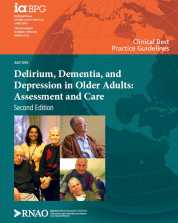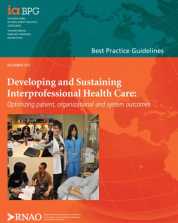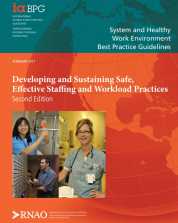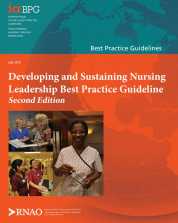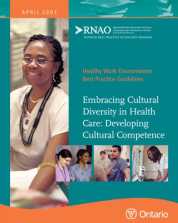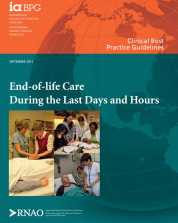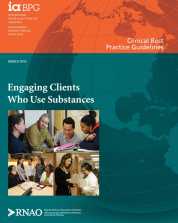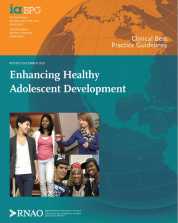This best practice guidelines (BPG) outlines recommendations for the assessment and care of delirium, dementia and depression in older adults. The focus is on the provision of effective, compassionate and dignified care, and on managing any presenting signs, symptoms or behaviours.
The purpose of this best practice guideline (BPG) is to foster healthy work environments.
The purpose of this best practice guideline (BPG) is to inform staffing and workload recommendations that can be implemented to benefit patients, nurses and other health-care providers, and organizations, as well as research, education, health-care policy, and systems. The goal of this guideline is to assist nurses, nursing leaders, and senior management groups across practice domains and settings to create healthy work environments through safe, effective staffing and workload practices.
The purpose of this best practice guideline is intended to assist nurses and others performing both formal and informal nursing leadership roles from the point-of-care to the board room, across a variety of practice domains and settings.
The purpose of this guideline is to provide nurses and members of the interprofessional team, persons at risk of or living with a diabetic foot ulcer (DFU) and their care partners with evidence-based recommendations on the prevention, assessment and management of DFUs.
The purpose of this best practice guideline (BPG) is to promote a healthy work environment for nurses by identifying best practices for embracing diversity within health care organizations.
The purpose of this best practice guideline (BPG) is to provide evidence-based recommendations for registered nurses and registered practical nurses on best nursing practices for end-of-life care during the last days and hours of life.
The purpose of this best practice guideline is to provide nurses and the interprofessional team across all care settings with evidence-based recommendations related to assessment and interventions for individuals aged 11 years and older who use substances and may be at risk for or experiencing a substance use disorder.
The purpose of this best practice guideline (BPG) is to assist nurses working with youth in a variety of practice settings, i.e. schools, public health units, community health centres, adolescent clinics, hospitals, and in family practice. Recommendations are inclusive of adolescent development across diverse contexts (e.g. cultural, socioeconomic, structural, political.)
